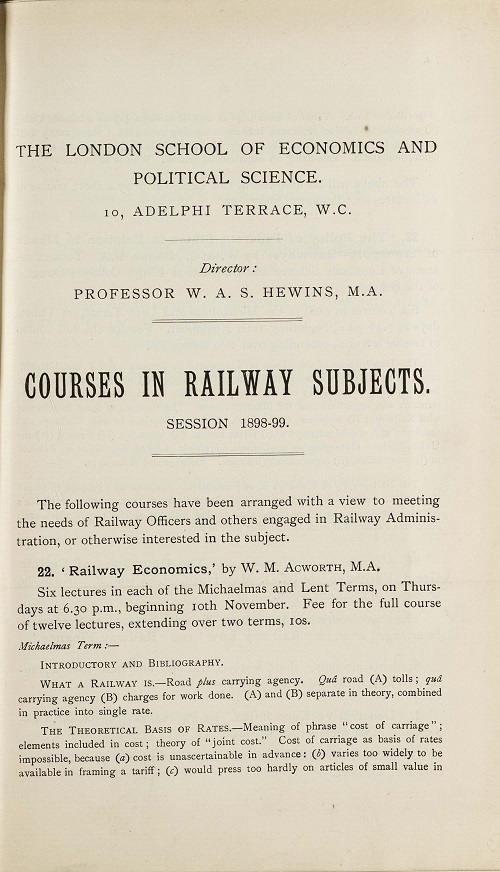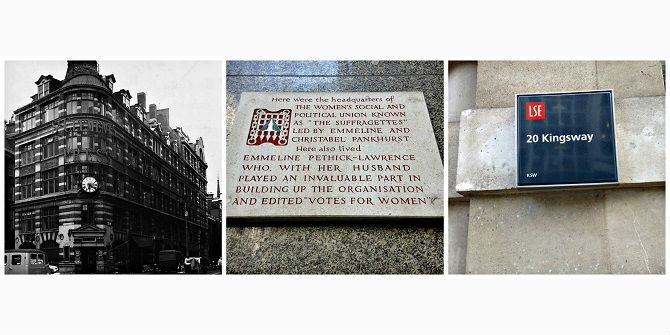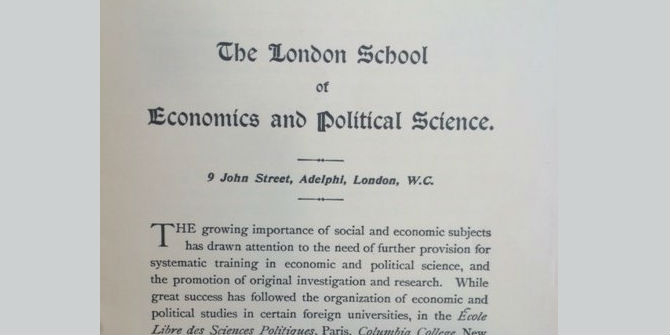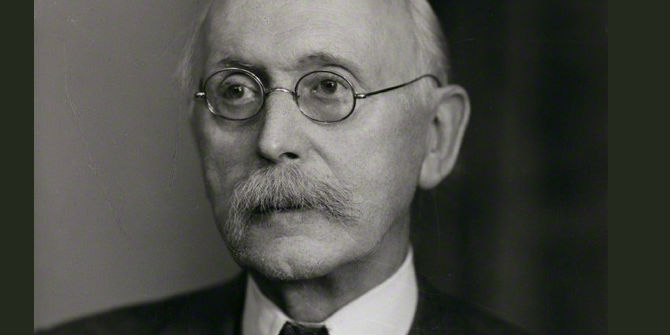A sign of LSE’s engagement with contemporary life was its early courses in railway economics and administration designed for railway administrators. Sue Donnelly, LSE Archivist, investigates the career of Sir William Acworth, one of the School’s first teachers.
In 1895, LSE’s prospectus listed a series of six lectures on Thursdays at 6.30 beginning on 31 October to be given by W M Acworth, MA, Christ Church Oxford. The inclusion of the course in the School’s programme was an indication of its engagement with the requirements of contemporary life and the railway courses brought in students, money and a wider interest in the School.
William Acworth (1850-1925) was born in Leicestershire and after studying history at Christ Church, Oxford, he spent 18 months in Germany tutoring the future Kaiser Wilhelm II and his brother Henry. On his return he taught at Dulwich College before joining the Metropolitan Asylums Board and serving on London Country Council. He was called to the bar at the Inner Temple in 1890.
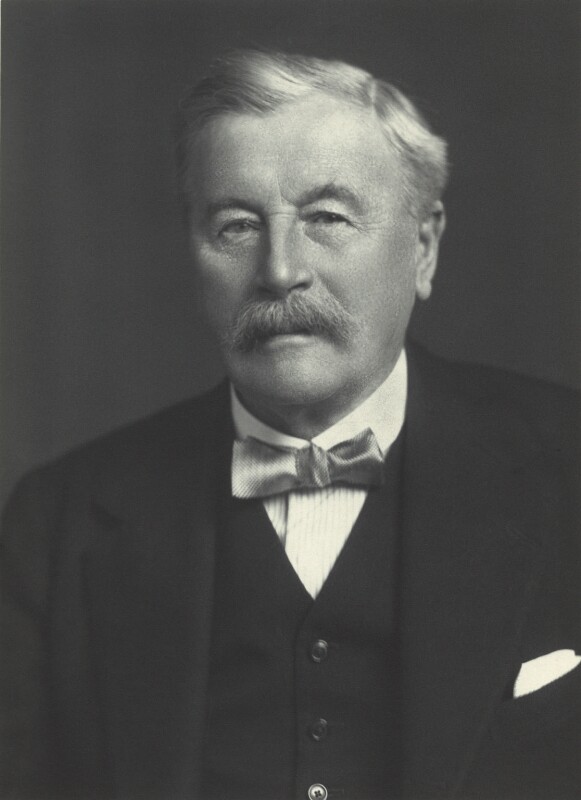
His first railway books, published between 1889-1890, were descriptive accounts of railways. Following a visit to the USA to investigate the statistical methods used by American railroads he published Railways and the Traders in which he critiqued the system of railway accounting then in operation in Britain, signalling a growing interest in the economics and statistical analysis of the railway business.
His role at LSE complemented his concern to improve the quality of management in British railways. There were some obstacles and in late 1895 he wrote to the Director, William Hewins, that the course exam results indicated his failure to realise the inexperience of his students in “abstract thinking”. However, it was clear that there was a demand for “such instruction” and he had been informed there would be more students the following year.[i]
There clearly was a demand as in 1899 Acworth was running his course in both the Michaelmas and Lent Terms and he was to continue his association with the School until his death in 1925. In 1899 he congratulated Hewins on the School’s entrance into the University of London writing:
Glad to hear of the London University. I am keen to be appointed an emeritus professor![ii]
For many years the courses for railway administrators were a key part of the School’s programme and its finances. When Great Eastern Railways withdrew from the programme in 1914 Acworth was asked to use his influence to ensure their continued participation.
Acworth was typical of LSE staff past and present in combining teaching and research with an active participation in public life. In 1906 he was a member of both the Vice regal Commission on Irish Railways and the Board of Trade committee on railway accounts and statistics as well as standing as the Unionist candidate for Keighley in Yorkshire.
During the First World War he worked for the British Red Cross, in 1916 joined the Royal Commission of Inquiry into the Canadian Railways and in 1917 gave evidence to the US Congress joint committee on inter-state and foreign commerce – evidence later published as A Historical Sketch of State Railway Ownership. In 1920 the British government accepted his recommendation that railway accounts be expressed in terms of ton-miles and passenger miles. He was knighted in 1921.
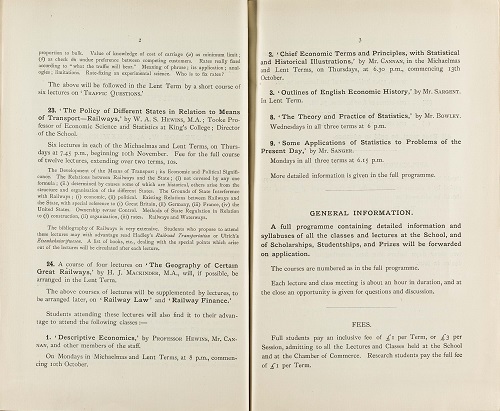
In the 1920s he was invited to advise overseas railways. He was Chair of the Committee on Indian Railway Policy and Administration, and in 1923 the League of Nations invited him to undertake an investigation of Austrian railways. The following year the Reparations Commission invited him to draw up a scheme to re-organise the German railways. Although Acworth was inclined to support private ownership of railways the disruption of the war years led him to advise on the need for some state support for these systems.
He was also at various points in his career a Director of the Underground Electric Railways of London Ltd and the Midland and South Western Railway as well as serving on the councils of the Royal Economic Society and Royal Statistical Society. The burden of work may well have led to his death in 1925 following a seizure.
He bequeathed a significant library of railway related materials to LSE which remain a part of the Library’s collections to this day.
References
[i] LSE/Staff files/Acworth William/Acworth to Hewins, 28 December 1895
[ii] LSE/Staff files/Acworth William/Acworth to Hewins, 7 June 1899


